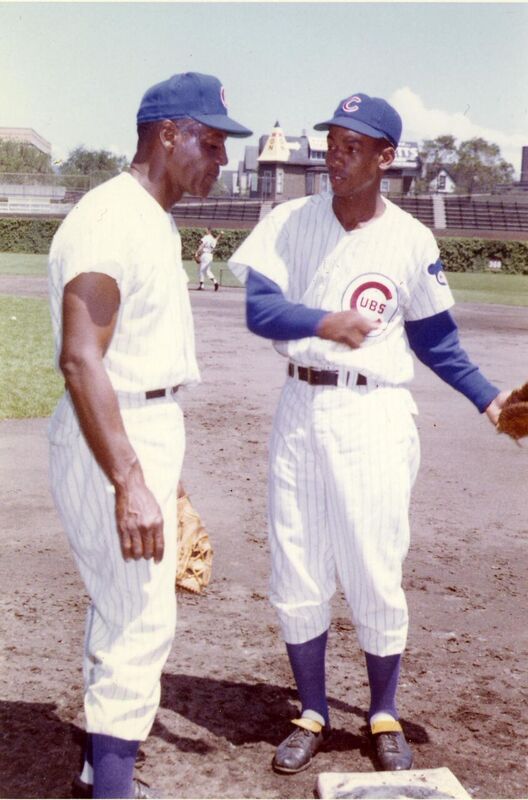In The Soul of Baseball, Joe Posnanski retells the romantic tale of how Buck O’Neil discovered and scouted Oscar Gamble in the Alabama backwoods. Aside from his role as the advocate for the Negro Leagues, O’Neil’s greatest contribution to baseball may be as one of the first black scouts for a major league team. As such he helped usher numerous young black players into the newly-integrated farm systems.
I wrote a little about his groundbreaking efforts and the impact he had on those who came after him in my book Legacy, including original reflections by MLB coach Eric Young and executive Tyrone Brooks:
Initially, several former Negro League players and managers began scouting black players for major league teams. In 1962, Buck O’Neil became the first black coach on a major league team. But O’Neil spent years before that as a scout, exploiting his familiarity with the Negro Leagues and baseball in the African-American communities. Other great Negro League baseball minds, Quincy Trouppe and Alex Pompez in particular, weathered the changing times by becoming scouts as well.
With white teams suddenly anxious to sign African-American and Latin-American players to bring into their system, it was only natural that they would turn to scouts of color to do the job. There was not only a familiarity with the Negro League system and the players available, but also with African-American and Hispanic culture.
“When you go to scout young players, there has to be a level of trust there,” said coach Eric Young, who played 15 seasons in the major leagues. “Especially (in the days before the draft, when young players signed free-agent contracts), when you’re scouting a young African-American player to take him away from his family and put them out there on their own, there had to be a trust. I’m sure it helped to know that they could go and talk to those kids and the kid could see them like a family member and trust them. Those scouts could not only read talent, they could get inside the kids’ head and know what they needed to succeed.”
They labored for years before they were allowed to coach in a big league dugout, but O’Neil, Pompez and others faithfully proved capable in the one role they were permitted.
Tyrone Brooks, a baseball executive and former scout, understands how much he owes to the men who paved the way for African Americans like himself. He described spending time with O’Neil, learning about scouting from the man who signed Ernie Banks and Lou Brock.
“We were just holding back tears trying not to break down crying as we listened to Buck’s stories and understood what he did to provide opportunities for those of us who came after him,” recalled Brooks.
After O’Neil became the first African American hired as a coach in 1962, the number grew very slowly. What resulted, sadly, was that a generation of great baseball minds was never mined from the Negro Leagues. Some of the style and strategy of the Negro Leagues crept into the majors. But the masterminds of the Negro Leagues were left behind.
“For them to not get a chance to go on and share what they knew with the white leagues, and maybe to improve it – that was a loss at that point in time,” said Young. “I wouldn’t say that all that knowledge was lost. Those Negro League coaches got the chance to pass their knowledge on to a lot of young players who then crossed over to the big leagues. But there were a lot of great baseball minds that didn’t get (appreciated).
The Topeka & Shawnee County Public Library is sponsoring a community read of The Soul of Baseball. Pick up a copy and look for events to discuss the book together. If you don’t live in Topeka, write any comments about O’Neil and the book you would like in this blog.
